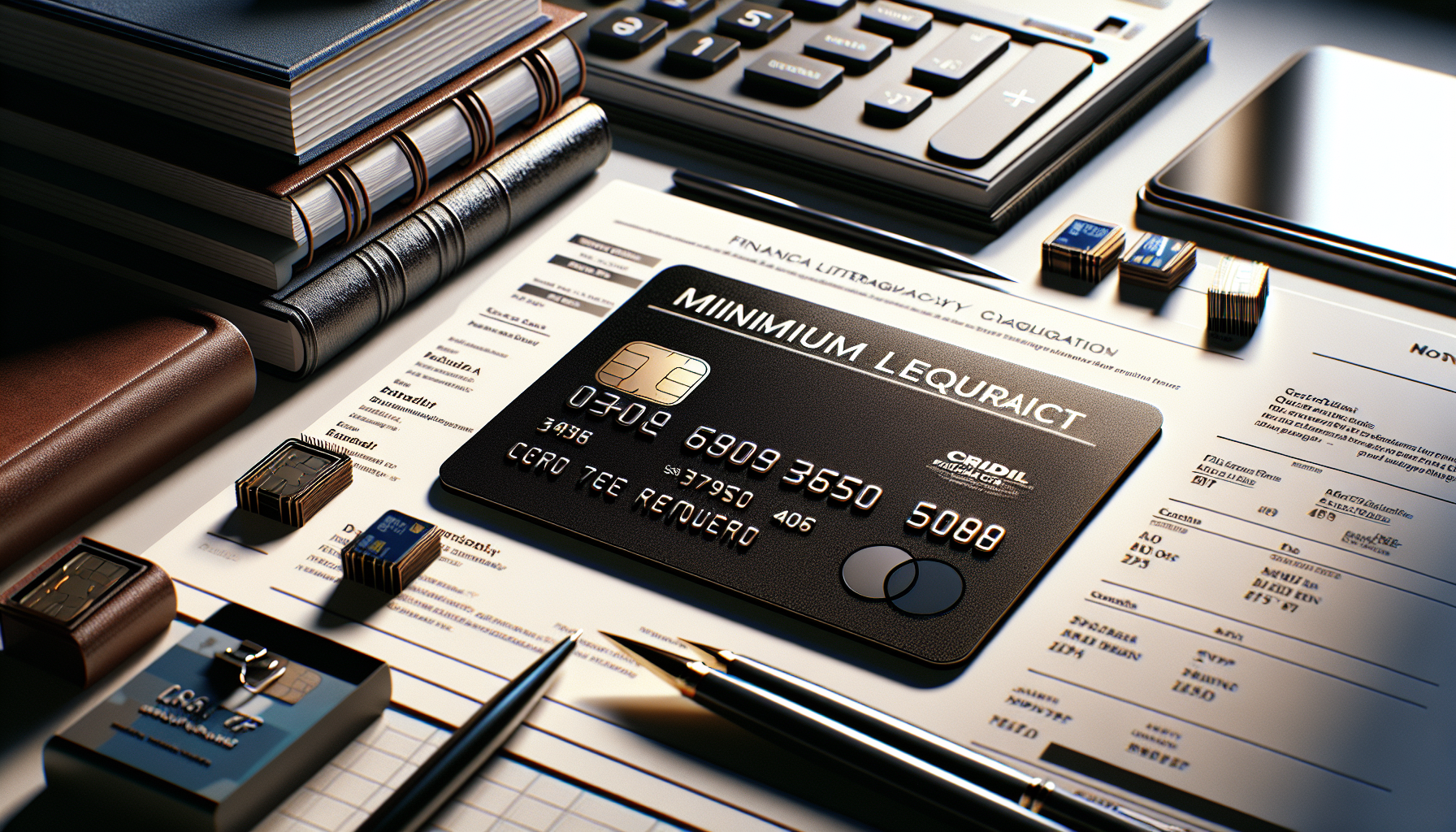Minimum Age Requirements for Credit Cards
When it comes to obtaining a credit card, age is a significant factor. Credit card issuers have specific age requirements that applicants must meet to be eligible for a card. Understanding these age restrictions is crucial for anyone looking to start building their credit history.
The minimum age requirements for credit cards are governed by the Credit Card Accountability Responsibility and Disclosure Act of 2009, also known as the CARD Act. This legislation was put in place to protect young consumers from taking on too much credit card debt without fully understanding the responsibilities that come with it.
The Legal Minimum Age to Get a Credit Card is 18
According to the CARD Act, the legal minimum age to obtain a credit card independently is 18 years old. At this age, individuals are considered adults and can enter into legally binding contracts, including credit card agreements.
However, simply being 18 does not guarantee approval for a credit card. Credit card issuers will still evaluate applicants based on their credit history, income, and other factors to determine their creditworthiness. For many 18-year-olds who are just starting out, qualifying for a credit card can be challenging due to limited credit history.
Additional Requirements for Applicants Under 21
While 18 is the legal minimum age to get a credit card, the CARD Act imposes additional requirements for applicants under the age of 21. These requirements were put in place to ensure that young adults have the financial means to manage credit responsibly.
Applicants under 21 must demonstrate that they have sufficient independent income to make credit card payments. This means they need to have a steady source of income, such as a part-time job or scholarships, to prove their ability to repay any credit card debt they incur.
Alternatively, applicants under 21 can have a co-signer on their credit card application. A co-signer is typically a parent or guardian who agrees to take responsibility for the credit card debt if the primary cardholder fails to make payments. The co-signer must be at least 21 years old and have a good credit history.
Credit Card Options for Young Adults
While getting a credit card at a young age can be challenging, there are several options available for those looking to start building their credit history. These options are designed to help young adults establish credit responsibly and learn good financial habits.
Become an Authorized User on Someone Else’s Account
One way for young adults to start building credit is by becoming an authorized user on someone else’s credit card account, typically a parent or guardian’s account. As an authorized user, you can use the credit card to make purchases, but the primary cardholder is ultimately responsible for making payments.
The primary cardholder’s credit history and activity on the account are reported to the credit bureaus, which can help the authorized user build credit. However, it’s important to note that not all credit card issuers report authorized user activity to the credit bureaus, so it’s essential to check with the specific issuer.
There is no minimum age requirement to become an authorized user, making it an option for those under 18. However, it’s crucial for the primary cardholder to use the credit card responsibly and make timely payments to avoid negatively impacting the authorized user’s credit.
Open a Secured Credit Card
Another option for young adults is to open a secured credit card. Secured credit cards are designed for individuals with limited or no credit history and require a cash deposit as collateral.
The cash deposit typically determines the credit limit on the card. For example, if you make a $500 deposit, your credit limit will usually be $500. This deposit acts as a safety net for the credit card issuer in case you fail to make payments.
Secured credit cards function like regular credit cards, allowing you to make purchases and build credit history. The activity on the card is reported to the credit bureaus, which can help you establish a positive credit record over time. After demonstrating responsible credit usage, you may have the opportunity to upgrade to an unsecured credit card and have your deposit returned.
Apply for a Student Credit Card
For college students, student credit cards are another viable option. These cards are specifically designed for students and often have more lenient credit requirements compared to traditional credit cards.
Student credit cards typically have lower credit limits and may offer incentives such as cash back rewards for good grades or no annual fees. These cards provide an opportunity for students to start building credit while learning responsible credit habits.
To qualify for a student credit card, applicants usually need to provide proof of enrollment in an accredited college or university. Some issuers may also require a co-signer if the student doesn’t have sufficient income.
Building Credit Early With a Credit Card
Starting to build credit at a young age can have significant long-term benefits. A strong credit history can open up opportunities for better loan rates, credit card offers, and even job prospects in the future.
The Importance of Starting Young
Building credit takes time, and the earlier you start, the more time you have to establish a solid credit foundation. When you begin using credit responsibly at a young age, you can create a longer credit history, which is one of the factors that contribute to a good credit score.
Starting early also helps you avoid becoming credit invisible, which refers to individuals who have no credit history at all. Being credit invisible can make it challenging to access credit products and services when you need them later in life.
Additionally, building credit early allows you to make mistakes and learn from them without severe consequences. As you navigate credit management, you may encounter challenges such as missed payments or high credit utilization. Starting early gives you time to correct these mistakes and develop good credit habits.
Tips for Managing Your First Credit Card
When you get your first credit card, it’s essential to use it responsibly to build a positive credit history. Here are some tips for managing your first credit card:
- Make timely payments: Always make your credit card payments on time. Late payments can negatively impact your credit score and result in fees and higher interest rates.
- Keep your balance low: Try to keep your credit card balance low relative to your credit limit. High credit utilization can hurt your credit score, so aim to use no more than 30% of your available credit.
- Pay your balance in full: Whenever possible, pay your credit card balance in full each month. This helps you avoid interest charges and keeps your debt manageable.
- Monitor your account regularly: Keep an eye on your credit card account by reviewing your statements and transactions regularly. This helps you catch any unauthorized charges or errors promptly.
- Use your card for regular expenses: To build credit, it’s important to use your credit card regularly. Use it for everyday expenses like groceries or gas, and pay off the balance each month.
By following these tips and using your credit card responsibly, you can establish a strong credit foundation that will serve you well in the future.
See also:




